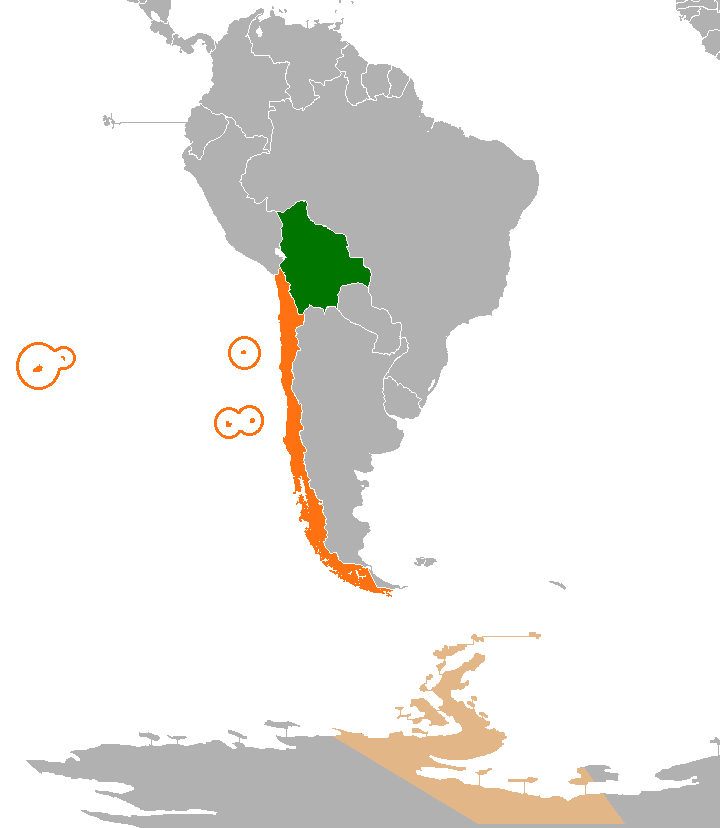Understanding Bolivia vs Chile: A Comprehensive Analysis of Relations and Tensions
In the heart of South America, two nations, Bolivia and Chile, share a complex and historically charged relationship. This post delves deep into the dynamics of Bolivia vs Chile, exploring the historical context of their interactions, territorial disputes, and the implications for both nations today. Understanding these two countries requires an exploration of their intertwined past, cultural differences, economic interactions, and current diplomatic endeavors.
The Historical Context of Bolivia and Chile Relations
The relations between Bolivia and Chile can be traced back to the 19th century during the War of the Pacific (1879-1884). This conflict, which also involved Peru, saw Chile gain significant territory. Bolivia lost its coastal region and became landlocked, a status that has since defined its national identity and aspirations. As a result, Bolivia has sought reclaiming its access to the Pacific Ocean, which remains a central point of contention in Bolivia vs Chile discussions.
The Impact of Geography on Bilateral Relations
Geographically, the absence of direct access to the sea has profoundly affected Bolivia’s economy. The loss of coastal access has restricted its trade options and has led to Bolivia’s reliance on Chilean ports for maritime trade. This dependency has complicated diplomatic relations, leading to ongoing negotiations and sometimes confrontational stances regarding sovereign rights and trade agreements.
Key Historical Events Shaping Current Affairs
Several key events have shaped modern Bolivia-Chile relations:
- War of the Pacific (1879-1884): A fundamental change in territorial boundaries, leading to Bolivia’s landlocked status.
- Peace Treaty of 1904: Solidified the territorial losses for Bolivia, while establishing a framework for future relations. Bolivia agreed to accept its landlocked status, but the desire to regain coastal access remained.
- International Court of Justice (ICJ) Rulings: In 2018, the ICJ dismissed Bolivia’s claim against Chile for sovereign access to the Pacific Ocean, emphasizing the complexities of international law surrounding historical territorial disputes.
Current Diplomatic Relations
In recent years, the diplomatic relations between Bolivia and Chile have seen various ups and downs. Political shifts within both countries often lead to changes in diplomatic tone and strategy. Currently, dialogue continues, with an emphasis on cooperation in economic matters, trade, and regional stability.
Chile’s policies regarding Bolivian access to the sea remain a sticking point. Despite several rounds of negotiations, a definitive resolution still eludes both nations. The Chilean government has expressed a commitment to maintain cordial relations while Bolivia continues to advocate for its claims.
Trade Relations: Opportunities and Challenges
Despite political tensions, trade relations between Bolivia and Chile have developed significantly. Chile is one of Bolivia’s main trade partners, providing essential exports such as fuel and consumer goods. Conversely, Bolivia exports natural gas and minerals to Chile, making them economically intertwined.
However, the relationship is not without its challenges. Bolivia’s dependence on Chilean ports creates vulnerability in trade negotiations. Fluctuations in political relations can disrupt trade, impacting businesses and economies on both sides. Given the current global economic climate and shifts in trade routes due to logistical challenges like the COVID-19 pandemic, the economic interdependence of Bolivia and Chile remains both an opportunity and a potential point of contention.
The Role of International Organizations
International organizations have played a pivotal role in mediating and facilitating dialogue between Bolivia and Chile. The Organization of American States (OAS) often seeks to provide frameworks for negotiation, while various bilateral discussions continue outside of formal institutions.
Moreover, both countries are members of the UN and other regional cooperatives that provide platforms for cooperation on broader issues, such as climate change, security, and social development. These international ties could be leveraged to strengthen relations, moving beyond historical grievances.
Public Sentiment and Cultural Perspectives
Public opinion in both countries towards their relationship varies widely, often influenced by the political landscape and media representations. In Bolivia, there is a strong national sentiment surrounding the historical grievances from the War of the Pacific, while in Chile, a different narrative focuses on economic cooperation and regional stability.
Educational exchanges, cultural initiatives, and people-to-people contacts have been encouraged to foster mutual understanding and respect. These initiatives can potentially ease historic tensions and promote a more collaborative future.
The Road Ahead: Future of Bolivia vs Chile Relations
The future of Bolivian and Chilean relations heavily depends on both sides’ willingness to engage in constructive dialogue while navigating their complex history. Efforts to normalize relations will require a combination of political will, public support, and perhaps most importantly, a commitment to mutual economic benefits.
As both nations face global challenges like climate change and economic instability, collaboration could lead to beneficial outcomes that transcend past conflicts. Seizing opportunities for partnership in natural resource management, trade, and social development may provide pathways to lasting peace and cooperation.
In conclusion, understanding the nuances of Bolivia vs Chile relations calls for a keen awareness of both historical context and current dynamics. As tensions and opportunities continue to emerge, the hope for a peaceful and productive relationship remains a critical aspect of South American politics.
For further detailed reading about the events and relations between Bolivia and Chile, visit Wikipedia.








